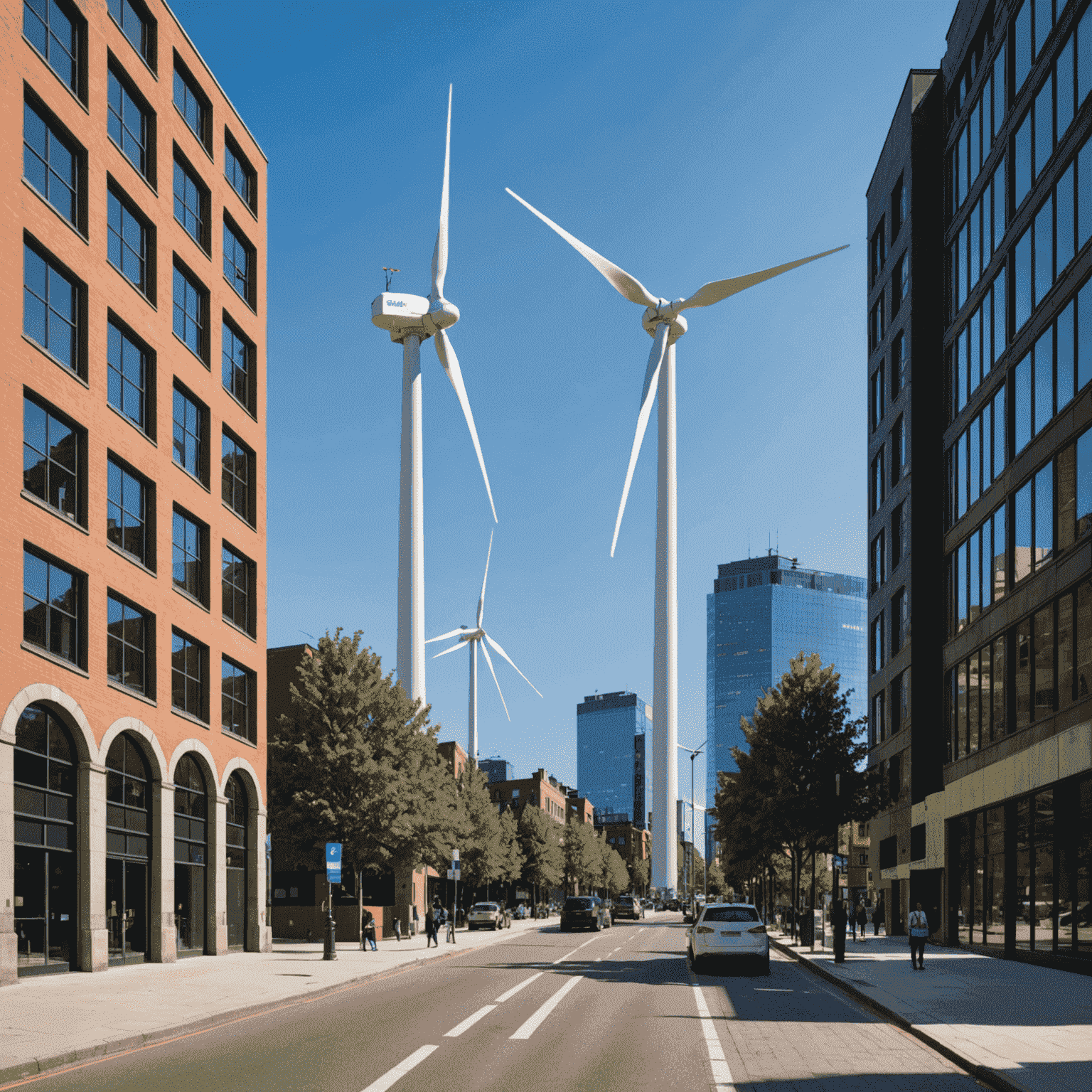Wind Turbine Technology: Latest Innovations

At GreenPowerPro, we're constantly pushing the boundaries of wind energy technology. Our commitment to innovation ensures that we remain at the forefront of sustainable power solutions. Let's explore some of the cutting-edge advancements in wind turbine design and efficiency that are shaping the future of renewable energy.
1. Larger and More Efficient Blades
One of the most significant innovations in wind turbine technology is the development of larger, more aerodynamic blades. These new designs capture more wind energy and convert it into electricity more efficiently than ever before.
- Blade lengths now exceeding 100 meters
- Use of advanced composite materials for lighter weight and increased strength
- Improved aerodynamics to reduce noise and increase energy capture
2. Smart Wind Farms
The integration of artificial intelligence and machine learning has revolutionized wind farm management. Smart systems can now:
- Predict wind patterns and optimize turbine positioning
- Perform predictive maintenance to reduce downtime
- Adjust turbine operations in real-time for maximum efficiency

3. Floating Offshore Wind Turbines
Advancements in offshore wind technology have led to the development of floating wind turbines. This innovation allows us to harness wind energy in deeper waters, where wind speeds are higher and more consistent.
Benefits of floating offshore wind turbines include:
- Access to stronger and more reliable wind resources
- Reduced visual impact on coastal areas
- Potential for larger scale wind farms
4. Advanced Materials
The use of cutting-edge materials is enhancing the performance and longevity of wind turbines:
- Carbon fiber composites for stronger, lighter blades
- Self-healing materials to reduce maintenance needs
- Hydrophobic coatings to prevent ice buildup in cold climates
5. Vertical Axis Wind Turbines (VAWTs)
While traditional horizontal axis turbines dominate the market, vertical axis designs are gaining traction for specific applications:
- Better suited for urban environments
- Less sensitive to changes in wind direction
- Potential for quieter operation

Conclusion
At GreenPowerPro, we're excited about these innovations and their potential to revolutionize the wind energy industry. By continuously improving turbine technology, we're not just generating more renewable power – we're creating a more sustainable future for generations to come.
Stay tuned for more updates on our latest projects and how we're implementing these cutting-edge technologies in our wind energy systems across Canada and beyond.